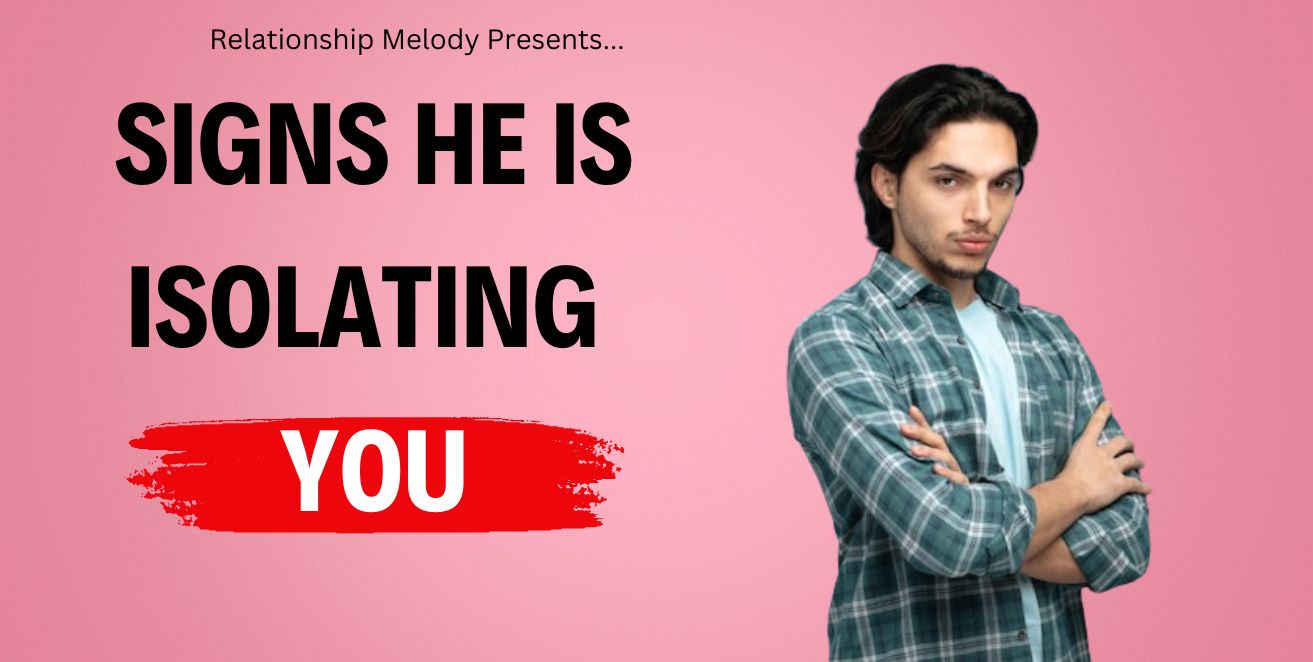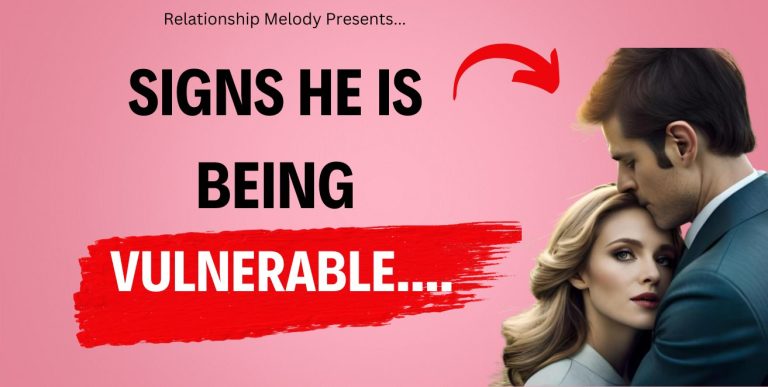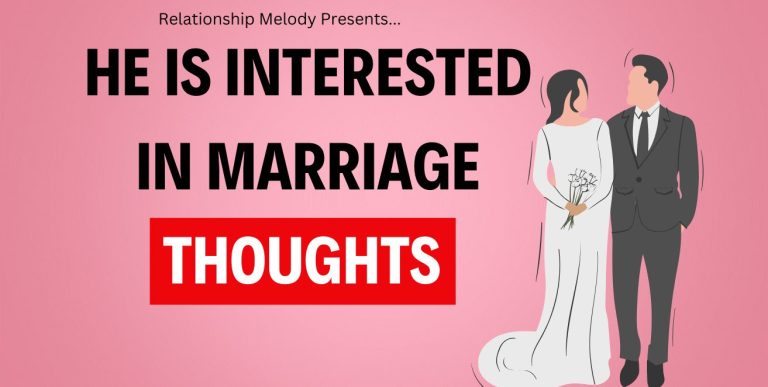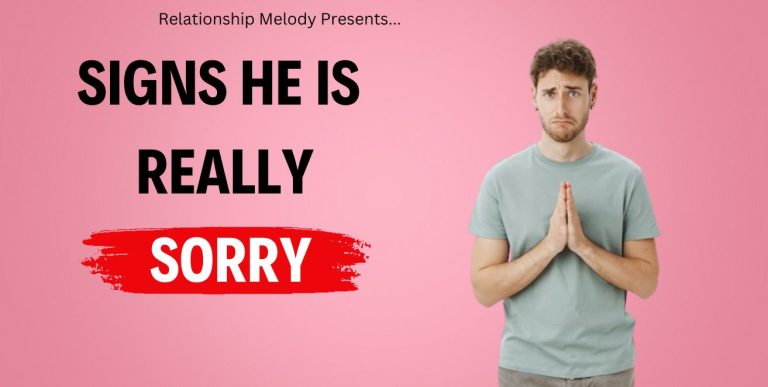25 Signs He Is Isolating You
In healthy relationships, individuals thrive on connection, support, and shared experiences. However, it’s essential to be aware of signs that may indicate your partner is isolating you, deliberately limiting your interactions with others and controlling your social interactions.
This blog post aims to shed light on 25 potential signs of isolation within a relationship. By understanding these signs, you can take steps towards preserving your autonomy, emotional well-being, and fostering a healthier dynamic. Remember, a relationship should enhance your life, not restrict it.
25 Signs He Is Isolating You
Here are 25 signs to know.
#1 Controlling Your Communication:
If your partner monitors or controls your interactions with friends, family, or even acquaintances, it may indicate an attempt to isolate you.
#2 Limiting Your Social Activities:
Constantly discouraging or preventing you from participating in social events, gatherings, or activities that you previously enjoyed might be a sign of isolation.
#3 Creating Dependency:
If your partner actively works to make you rely solely on them for emotional support, decision-making, and validation, it could be a way to isolate you from other sources of support.
#4 Undermining Your Relationships:
Constant criticism or belittling of your friends, family, or loved ones may be a tactic to isolate you and erode your support network.
#5 Gaslighting:
Engaging in gaslighting, where your partner manipulates your perception of reality, can isolate you by making you doubt your own thoughts, emotions, and judgments.
#6 Encouraging Secrecy:
If your partner insists on keeping your relationship or certain aspects of it a secret from others, it may be a way to isolate you and control the narrative.
#7 Monitoring Your Online Presence:
Constantly monitoring your online activities, such as checking your messages or social media accounts without your consent, can be a sign of isolating behavior.
#8 Alienating You from Friends:
Intentionally causing conflicts or creating rifts between you and your friends, or discouraging you from maintaining those friendships, is a red flag for isolation.
#9 Discouraging Personal Growth:
If your partner discourages or undermines your aspirations, hobbies, or personal development endeavors, it may be an attempt to isolate you and maintain control.
#10 Financial Control:
Exerting control over your finances, restricting access to money, or interfering with your employment opportunities can isolate you by limiting your independence.
#11 Emotionally Manipulating Your Decisions:
Using emotional manipulation tactics, such as guilt-tripping or making threats, to influence your choices can be a way to isolate you from making decisions that align with your own desires.
#12 Constant Surveillance:
If your partner constantly monitors your whereabouts, tracks your movements, or installs surveillance devices without your consent, it’s a clear sign of isolation.
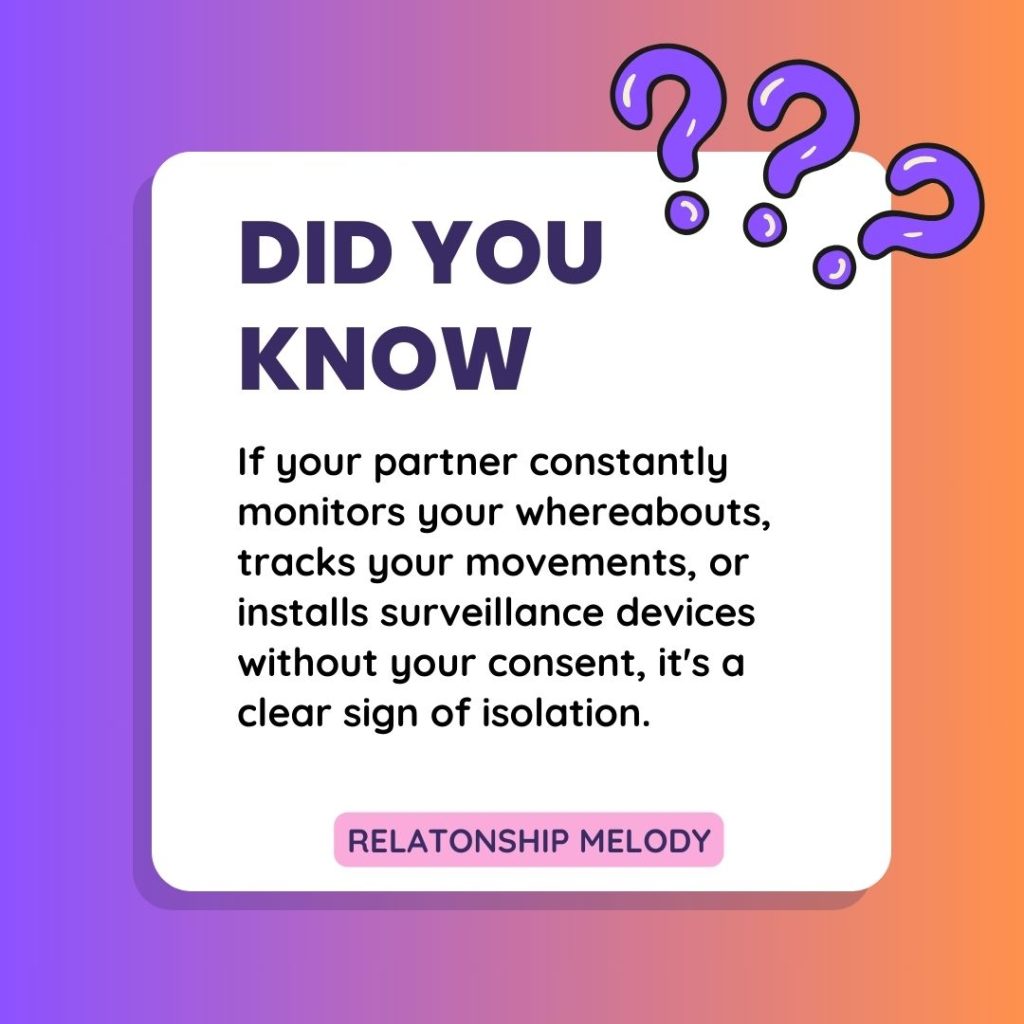
#13 Isolating You from Support Systems:
Actively discouraging or preventing you from seeking professional help, therapy, or support groups isolates you from resources that could empower you.
#14 Intentional Misrepresentation:
Deliberately misrepresenting events, conversations, or situations to others in order to isolate you or manipulate others’ perceptions of you is a sign of controlling behavior.
#15 Isolating You from Family:
Discouraging or preventing you from spending time with your family, creating conflicts with them, or isolating you from family events can be a strategy to isolate you.
#16 Criticizing Your Social Interactions:
Constantly criticizing your social interactions, labeling them as unhealthy or unnecessary, can be a way to isolate you and limit your connections.
#17 Encouraging Dependency on Substances:
Promoting excessive alcohol or drug use and discouraging you from engaging in sober activities or hobbies can isolate you from a healthier lifestyle and support networks
#18 Monitoring Your Conversations:
Listening in on your private conversations, intercepting messages, or demanding access to your private communication platforms invades your privacy and isolates you.
#19 Making Decisions Without Your Input:
Your partner consistently making decisions about your shared life without consulting you isolates you from actively participating in important choices.
#20 Public Humiliation:
Engaging in public humiliation or embarrassment tactics can isolate you by making you fearful of social interactions or judgment from others.
#21 Emotional Withdrawal:
If your partner consistently withholds affection, emotional support, or intimacy as a way to control you or make you feel isolated, it’s a significant red flag.
#22 Encouraging Relocation:
Pressuring or coercing you into moving away from your support network, hometown, or familiar surroundings can isolate you from the people and places that provide comfort.
#23 Blaming You for Isolation:
Your partner consistently blaming you for the isolation or suggesting that it is your fault can be a manipulative tactic to deflect responsibility.
#24 Threatening Behavior:
Any form of threats, whether physical, emotional, or psychological, is an extreme sign of control and isolation that requires immediate attention and support.
#25 Undermining Your Self-Confidence:
Constantly criticizing your appearance, abilities, or worth can gradually erode your self-confidence and isolate you from seeking validation elsewhere.
Read more: Signs He Is Irritated By you.
Conclusion:
Recognizing signs of isolation within a relationship is crucial for maintaining your well-being and autonomy. If you resonate with any of the mentioned signs, it’s essential to seek support from trusted friends, family, or professionals who can help you navigate the situation.
Remember, healthy relationships are built on trust, respect, and mutual support, allowing both partners to grow individually and together.
By identifying these signs, you can take proactive steps to address and resolve the issue, establishing a healthier and more balanced dynamic in your relationship.
Liked Our Article?
Our Patreon link: https://www.patreon.com/RelationshipMelody

Welcome to Relationship Melody! Our website is dedicated to all things on relationships, dating, and love! We are passionate about helping you navigate the ups and downs of love, and our goal is to provide you with valuable insights and information that will make your journey toward a fulfilling relationship smoother and more enjoyable.

